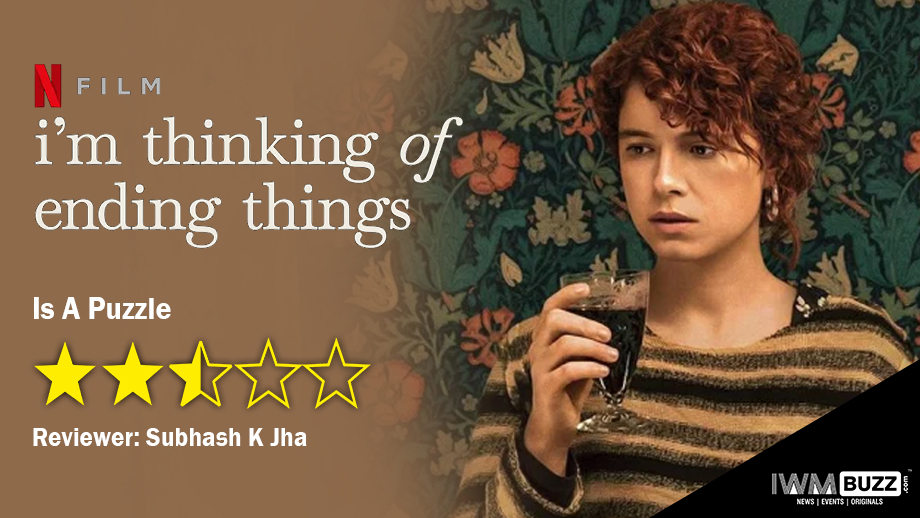I’m Thinking Of Ending Things (Netflix)
Starring Jesse Plemons,Jessie Buckley,Toni Collette,David Thewlis
Directed by Charlie Kaufman
Rating: ** ½
An old man in the early stages of Alzheimer’s, says it’s better to lose your memory completely than to know you are losing it.
I’m Thinking Of Ending Things,a film as strange as its title, plays numbing mindgames with audiences’ perceptions from the very first frame to the last until we don’t know why things are what they are, or who is doing whom, and why he is where she is,or she is where he is.Or whatever.
To be honest I found the whole rigmarole a bit of an intellectual sham.The kind of cinema that ‘serious’ students make in film school to impress their professors. An illusion of real life with heavy literary references thrown in, all amounting to a work that tries to seduce us by being a sum-total of everything that we don’t know about the characters rather than what we do know.
By the end of the film I was not sure if the plot in trying to uber-hot , ends up muddled and distraught, or what. I wasn’t even sure if the protagonist Lucy(who changes her name several times in the film) exists. Or is she just a figment of someone else’s imagination? Not ours. Or maybe it’s just us thinking of ending the film.
The dinner with Lucy’s frumpy fiancé Jake(Jesse Plemons)’s eccentric parents(Toni Collette , David Thewlis) is so bizarre and out-of-tune, it defies any coherent reflection. Like chapters in a psycho-wacky novel the parents keep aging and de-aging throughout the evening. Veterans Collette and Thewlis play the parents with an unendurable level of hysteria. They are like two demented teenagers suddenly made to act much wiser than their years.
Throughout the dinner the characters jump topics that range from chocolate cakes to ear aches.
The only sane performance in this unhinged, partially interesting, drama comes from the lead Jesse Buckley, chosen because she looks sensible and remains grounded while else around her topples over into a hallucinogenic haze of inherent time-flips.
While much of the narrative arc is amorphous what comes across clearly is the film’s modest budget. Most of the film is shot in a car driving across a snowstorm, and a cosy cottage housing Jake’s parents, the end-game is set in a highschool where unknown actors break into a rendering of the musical Oklohama.
There are lengthy references to poet William Wordworth, critic Pauline Kael and the film The Wonder Under the Influence. The two protagonists, ill-matched and largely unsure of their conversation with one another, are as confused as they are confusing. Do they really exist? Do WE exist? If we do, why should we waste time trying to figure out why this film was ever made?


